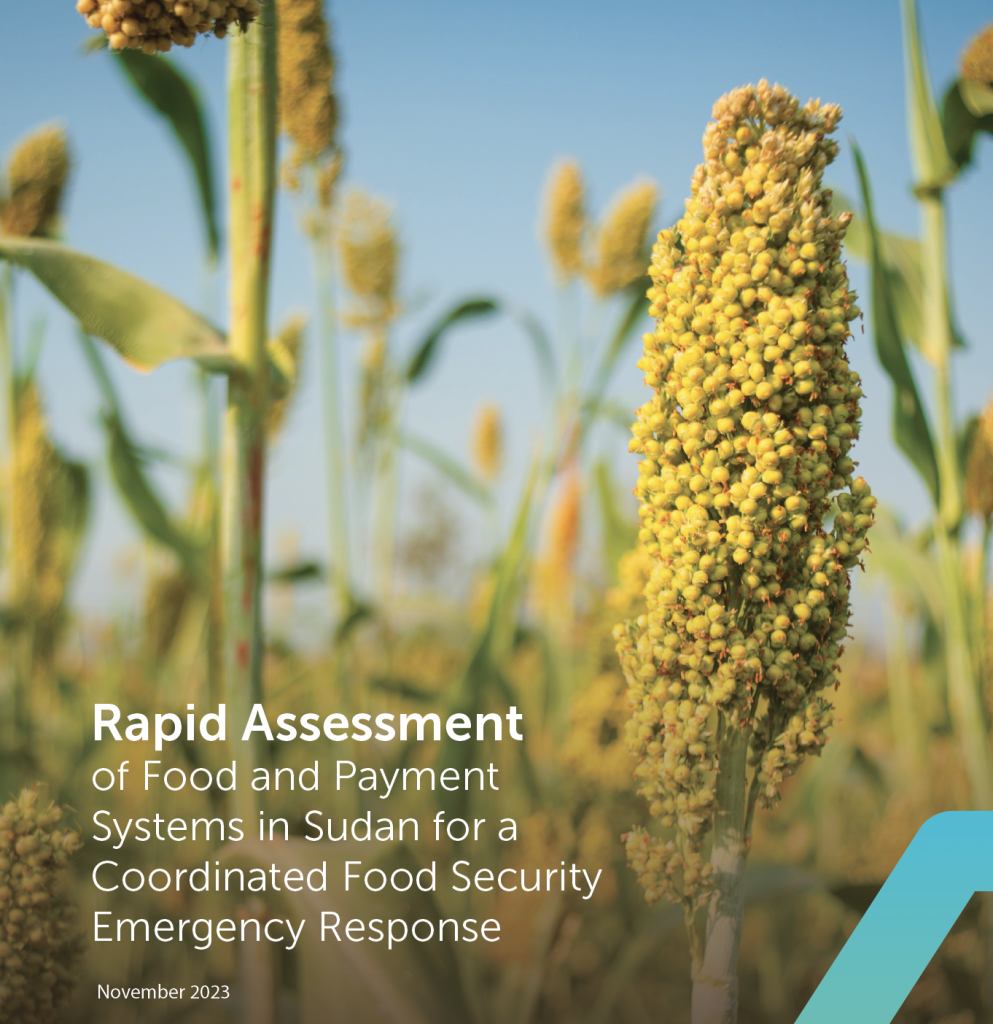31 January 2024. Investing in resilience: Pathways to food security for Sudan
- The Foreign and Commonwealth Development Office (FCDO) Sudan and FSD Africa commissioned Wellspring to undertake a rapid assessment of the agri-food and enabling payment systems in Sudan, to inform a coordinated emergency response that promotes food security.
- This webinar provided insights on the current situation, critical challenges and proposed interventions that can be deployed.
Recording forthcoming
Resources:
FSD, Wellspring (2023) Rapid Assessment of Food and Payment Systems in Sudan for a Coordinated Food Security Emergency Response November 2023 #24 p.- Sorghum, millet, and wheat are three key staple crops consumed in Sudan
- In addition to the three main cereal value chains, there are others that may be regionally important for food security, including horticulture, legumes and pulses, and oilseeds.
Analysis of value chain segments
- Access to inputs has decreased dramatically as a result of the ongoing conflict, mainly due to lack of access to inputs financing.
- Farmers have abandoned mechanization due to high fuel prices.
- Planting during the recent summer season has significantly decreased compared to past years
- A large proportion of Sudan’s processing capacity was concentrated in Khartoum and has been destroyed.
- There are, however, small and medium agriprocessors still operating in other states, and some larger conglomerates have also relocated processing operations to cities such as Port Sudan since the conflict.
- The current conflict has disrupted traditional pathways to market.
- Financial service providers (FSPs) have been very directly impacted by the conflict as well, with the vast majority of financial institutions still non-operational.
- The current conflict, and its impact on traditional financial institutions, has prompted a surge in demand for digital financial services.
- The use of informal payments systems, known as hawala, has also risen to fill the gap left by non-operational formal financial institutions
There is an ongoing debate around the importance of wheat for food security in Sudan, as it is mainly
consumed in urban areas and may not be suitable for domestic production. On the one hand, Sudan’s domestic
wheat production is not cost-competitive against imports, and the type and quality of domestic wheat is often not suitable for flour milling (...) Wheat flour and
bread have been heavily subsidized for end consumers, and protests around previous withdrawals of subsidies and
rising wheat prices have toppled governments. (page 7)


No comments:
Post a Comment